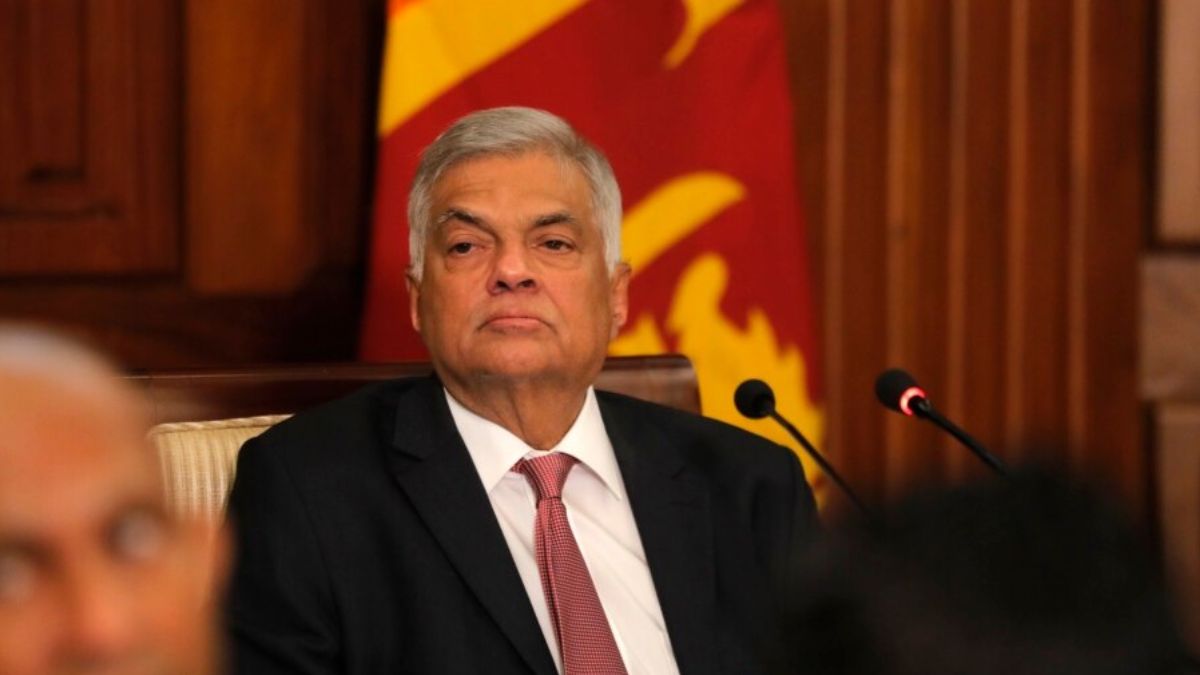Sri Lanka is going to the polls on Saturday. Two days before the 17 million eligible voters decide who will be the next president of Sri Lanka, incumbent and election candidate Ranil Wickremesinghe in an interview with Firstpost’s Managing Editor Palki Sharma defended measures he took to deal with the country’s economic collapse two years ago.
Wickremesinghe took charge of the Sri Lanka government after the then-President Gotabaya Rajapaksa was forced out of power by a youth agitation that built up against rising cost of living in the Indian Ocean island. Sri Lanka, once a bright spot in South Asia’s economic and social development, was on the brink of an economic and social collapse.
When asked how he reflects on the two-year period and whether his government has achieved what he set out to when he took reins of power in those times of chaos and confusion, he said, “Yes, I wanted to establish stability, have a stable Sri Lanka, where law and order is maintained, the democratic system moved ahead and, of course, to put the economy back on track. I’ve done that, I think.”
He said, “This morning, we finalised the last part of our negotiations [with the International Monetary Fund] regarding debt sustainability and bankruptcy after Sri Lanka was declared bankrupt in 2022. With the measures we have taken, I have come to an agreement with the IMF, with the 80 creditor countries and with the official creditors committee…”
“We came to an agreement with the China Development Bank and finally we’ve come to an agreement with the private bank bondholders, those who represent a block or the majority of the private bank bondholders,” he said.
Impact Shorts
More Shorts“So, the next stage will be to declare that Sri Lanka has a debt sustainability and we will be moved out of the bankruptcy stage. That’s what I wanted to do in two years. I have done that,” the Sri Lankan president said.
Wickremesinghe dismissed criticism that he used excessive force to dismantle the protest sites or put the common Lankan people to much discomfort with his economic reforms that significantly pushed up taxes.
Was the bitter pill too bitter? Wickremesinghe dismissed these charges, saying, “I don’t think the bitter pill was too bitter. We had to take a pill at some time and someone had to take a decision. No one was willing to take that decision. And I didn’t want it to be another Greece taking ten years. We are coming out of it [economic turmoil]. We had to raise our own revenue. We could no longer be printing money on borrowing money.”
He said, “At that time, we had to raise VAT [value-added tax]. I know the difficulties people went through, but I was so confident the rupee will be strengthened. The rupee has strengthened certainly [and] we have more revenue. We’ve been able to increase the rate of our benefit. We are now increasing the salary of government servants as well as allowances.”
With Wickremesinghe aiming a return to the presidential office, he said, “We still have a gap which I will in 2025 be able to bridge so that people feel that life is back to normal.”
He, however, said that the economic recovery process would take three years. When asked does he think that the average Sri Lankan voter voting on Saturday would have understood the message of his economic recovery process, Wickremesinghe said, “They have been given the message and many of them have got it that this is a process and by [the time] we finish it in three years, they would have also got the message that those who are trying to help them and also also those who were not willing to help them in 2022 and ran away.”
Locally called “Aragalaya,” meaning struggle in Sinhalese the language of Sri Lanka, the movement emerged in March 2022 with thousands of people taking to the streets. It was led by the youth of Sri Lanka, who began their protest over long power cuts, acute shortages of fuel, food, and medicine and rising prices of daily household needs.
It was the first time that Sri Lanka saw such a mass movement with citizens from diverse ethnicities, religions, generations, and social classes coming together with one objective — to overthrow the Gotabaya Rajapaksa-led government, which was deemed corrupt and inefficient.
The agitation remained largely non-violent and succeeded in removing the Rajapaksa family from power. Gotabaya Rajapksa’s brother Mahinda Rajapaksa was the prime minister, who resigned first in May 2022. But protesters didn’t go home. Ultimately Gotabaya Rajapaksa resigned as president in July 2022. Incidentally, Namal Rajapaksa, the son of Mahinda Rajapaksa, will be competing with Ranil Wickremsinghe for presidential votes on Saturday.
)